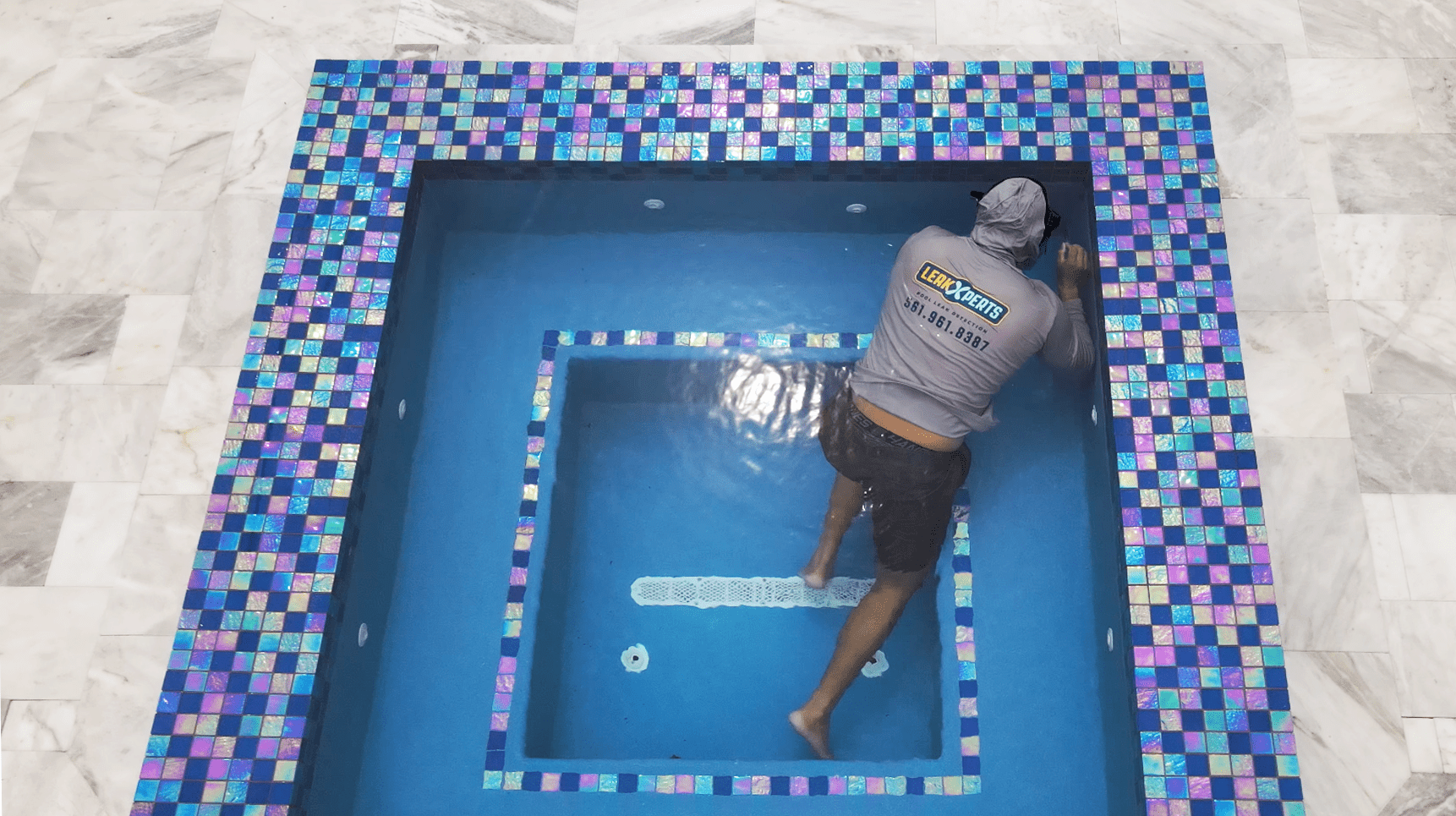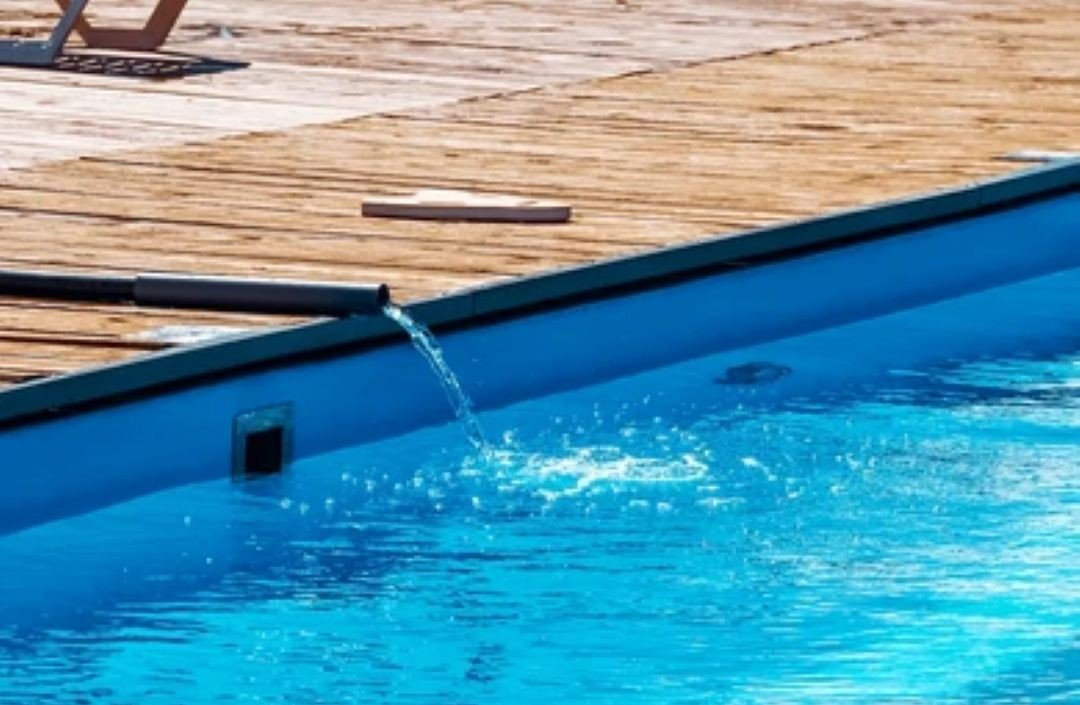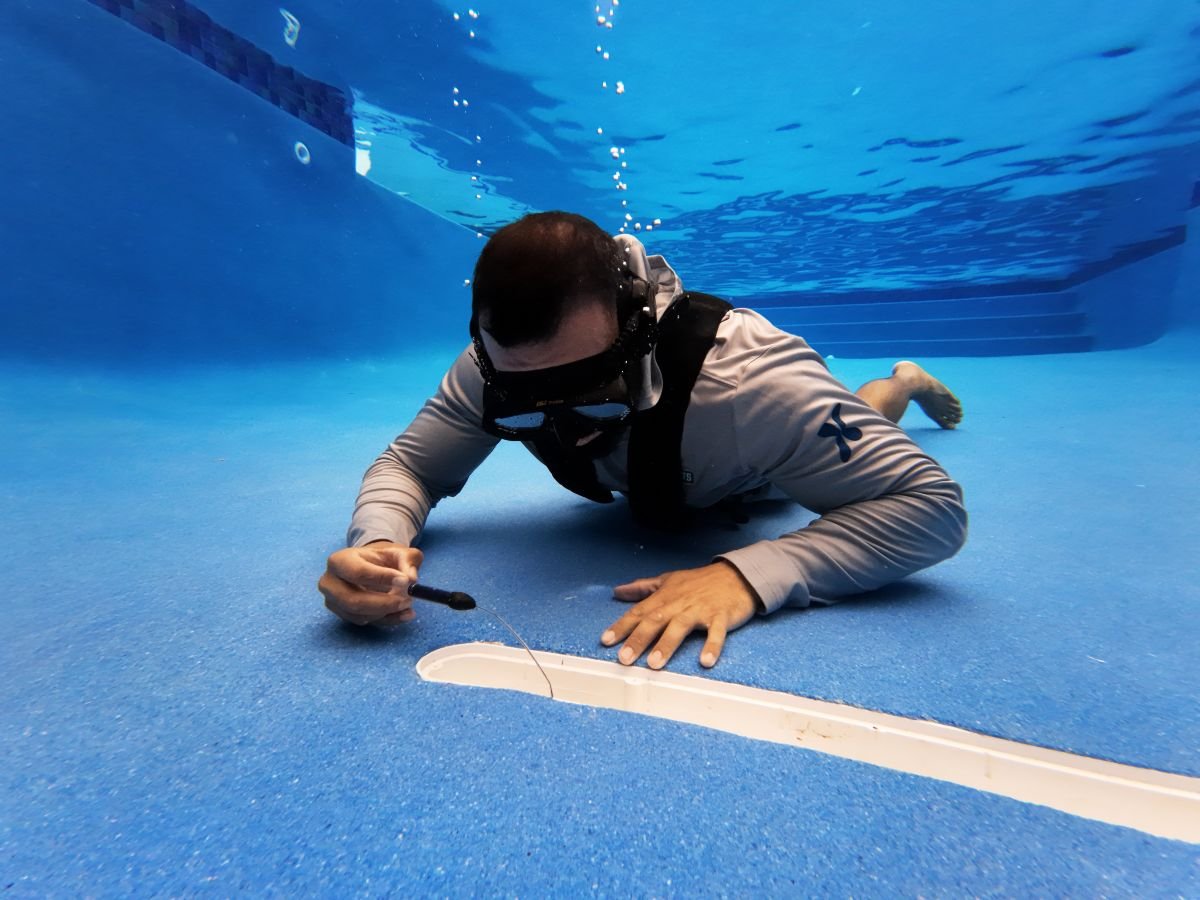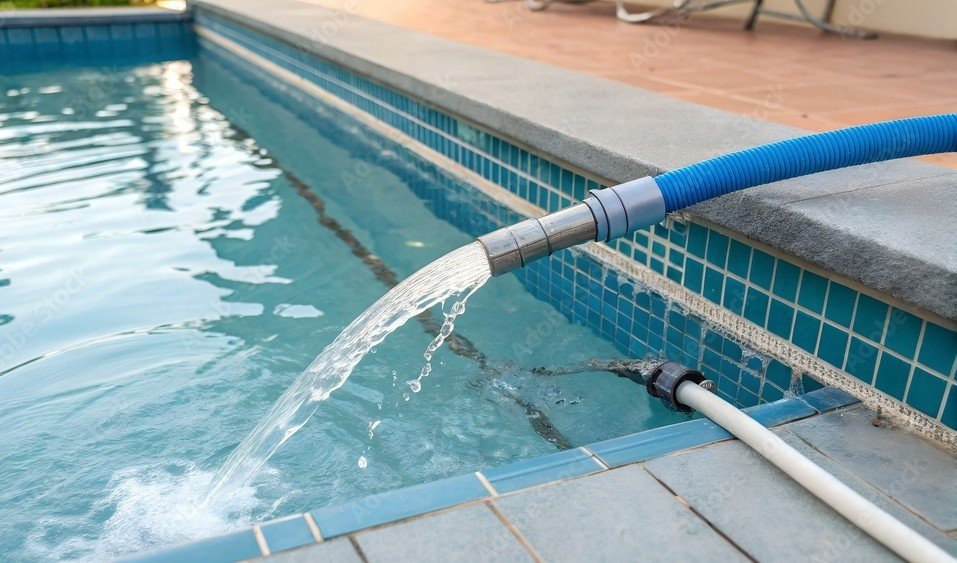If you’re wondering, “How much water loss in a pool is normal?” you’re not alone. Every pool owner faces the mystery of disappearing water at some point. Maybe you’ve spotted the waterline creeping down faster than you expected.
At LeakXperts, we specialize in helping pool owners figure out what’s going on. One of our clients, a family in Fort Lauderdale, noticed their pool was losing over an inch of water daily, even on calm, cool days.
After we conducted a thorough inspection, we discovered a crack in the pool’s return line that had been slowly leaking water underground. Once repaired, their pool stopped losing water so rapidly, and they saved hundreds on their water bill.
Understanding Normal Pool Water Loss
In general, a pool can lose about 1/4 to 1/2 inch of water per day through evaporation. The actual rate depends on several environmental conditions:
- Temperature: Hotter days speed up evaporation, while cooler days slow it down.
- Humidity: In drier climates, air draws water from the pool more quickly.
- Wind: Breezy conditions blow water droplets away, increasing daily evaporation.
A luxury pool showed no visible cracks, yet water levels kept dropping. Our technicians discovered that the pool’s decorative water feature was subtly splashing water over the edge, causing steady losses. Once we adjusted the feature’s flow and installed a minor catchment system, the problem was solved.
“Evaporation rates can double or even triple during heat waves or when the humidity drops. Pool owners in warmer climates should monitor their water levels more closely during peak summer months,” says Dr. Matthew Hughes, a climatologist and consultant for pool maintenance standards.

Chris, noticed his pool dropped about 1/4 inch daily. After checking weather data, he realized that a hot, windy spell was behind the normal evaporation.
When It’s More Than Evaporation
If your pool loses more than 1/2 inch per day, you may have a leak. This becomes especially likely if you notice any of the following:
- Sudden, unexplained drops in water level.
- Damp or soggy patches around the pool.
- A spike in your water bill.
- Cracks in the pool deck or shell.
Maria from Coral Springs, was losing an inch of water a day. After we conducted a quick inspection, they discovered a hairline crack near the return jets. Once repaired, the water loss stopped.

The Bucket Test: Your First Step
Not sure whether it’s evaporation or a leak? The bucket test can help you determine what’s going on. Follow these steps:
- Fill a bucket with pool water until the level matches the pool’s water level.
- Place the bucket on a stable surface near the pool, ensuring the water inside is at the same height as the pool’s water level.
- Mark the water levels in the bucket and in the pool.
- Wait 24 hours without swimming or splashing.
- Compare the results.
In Phoenix, Arizona, a local pool owner reported losing almost an inch of water daily, especially during the dry, scorching summer months. Upon closer inspection, we found it was simply high evaporation due to extreme heat and low humidity.
- If both lose the same amount of water: It’s likely normal evaporation.
- If the pool loses more water than the bucket: You probably have a leak.
- Repeat this test periodically to monitor any changes in water loss.
Pro Tip:
If you don’t have time to measure daily, consider using a pool water leveler or a floating marker. “Simple, affordable tools can help you keep an eye on evaporation versus water loss from a leak,” recommends Michelle Davis, a certified pool technician and leak detection trainer.

When to Call the LeakXperts
If the bucket test suggests you have a leak, or if you’re seeing other concerning signs, don’t wait. Acting quickly can save you from bigger headaches:
- Even small leaks can waste hundreds of gallons of water each day.
- Leaks left untreated can cause cracks or weaken the pool’s surrounding structures.
- Professional intervention stops the issue from escalating and gives you peace of mind.
“Most pool leaks start small and gradually worsen. If you notice an increase in water loss over time, it’s likely not just evaporation. Addressing it early can save a fortune in repairs down the line,” says Carl Ramirez, a pool engineering specialist with over 20 years of industry experience.
Lisa , noticed damp spots around her pool deck. LeakXperts identified a plumbing leak beneath the deck, repaired it, and provided her with monitoring tips to catch future issues early.
Understanding what normal water loss looks like helps you maintain your pool’s health. If you suspect a leak, it’s crucial to act quickly. LeakXperts can diagnose and repair the problem promptly, helping you save money, preserve water, and enjoy your pool with total peace of mind.
The environment around your pool plays a crucial role in its longevity. MasterTouch Outdoor Living, specializes in designing and building pools that are both functional and durable. Their expertise ensures your pool area remains protected from environmental factors that could lead to leaks or other structural issues.
Curious whether your pool’s water loss is normal? Call us today at (561) 961-8387, our team specializes in fast, accurate leak detection and repair. Don’t let a small leak turn into a bigger, more expensive problem. Contact us today to keep your pool in peak condition, worry-free.




